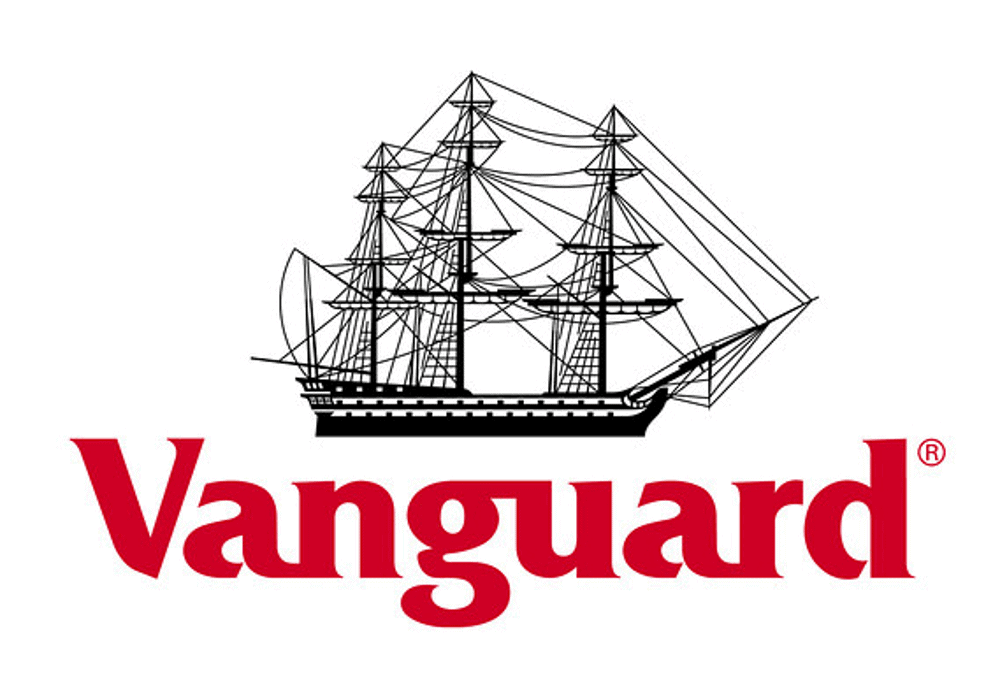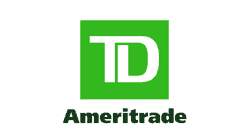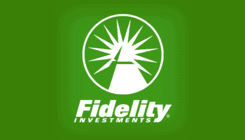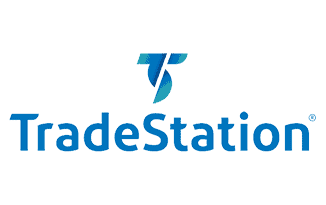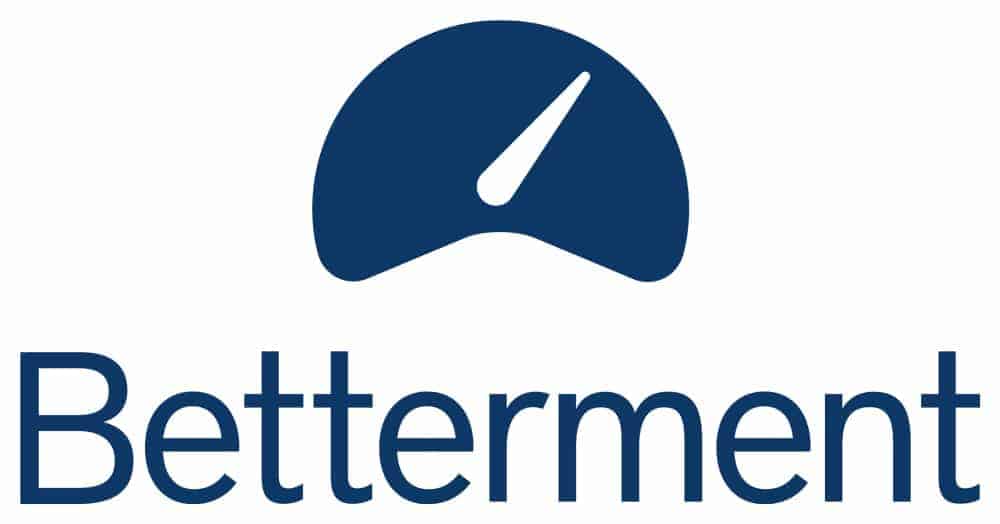Best IRA Accounts Compared 2021
It is common to see individuals getting to their 40s and freaking out after realizing the time and money they lost by not starting saving for retirement early in their lives. In today’s fast-paced world it is important for investors to be aware of the benefits that opening a retirement account can have in their adult life.
Even though access to these types of tax-advantaged accounts has been relatively easy for many years, it has become as simple as filling an online form with today’s electronic standard. There is no reason not to plan for descent and well-deserved retirement after so many years of hard work.
A common misconception that I usually hear is that individuals believe they have to contribute to the max of the IRA every year and this is not true. Investors can allocate as little as they can, allowing investors to contribute based on their possibilities and with no restriction.
Not two individuals are the same, and this also applies to their retirement accounts. It is important to understand each other personal goals and to plan towards them. There are many different types of IRAs that will boost investments and the possibility of a better retirement in the future. Even though methodologies vary between account types, they all offer a basic standard of tax incentive for investments made through the account.
Bellow, you will find the most important types of the best IRA accounts and their most important characteristics. I’m confident that one of our best IRA accounts will suit your risk profile and your long term goals perfectly.
-
-
1. Vanguard Group
Our Rating
- Open an account Free of charge
- Hardship withdrawals allowed
- Get a free portfolio management
- Make your retirement plans in an easy and straightforward process
What Types of IRAs are there?
Traditional IRARoth IRASEP IRANondeductible IRASpousal IRASimple IRASelf Directed IRAThe Traditional IRA is the most popular type of account, mostly because it offers a tax-deductible option that allows investors to allocate money pre-tax. In essence, this permits investors to pay for the taxes once they withdraw from the account, taking advantage of their current tax rate. While this might not represent a big deal for in the short-term, it is important for investors to keep in mind that their tax rates will vary as they become older and that in the meantime they will be able to enjoy from the compounding interests in their account.
IRAs provides access for investors to buy stocks, ETFs, bonds, mutual funds, and other liquid asset classes. This traditional IRA account especially benefits any individuals who expect to be at a lower tax rate in the future, allowing them to profit from the markets while waiting to pay the tax until they become cheaper later in their life.
Pros
- Individuals receive an upfront tax break of up to $6,000 a year ($500 a month)
- Compounded earnings won’t be taxed as long as the money remains in the account
- Withdrawals will be taxed at the tax rate at the time
Cons
- Early withdrawals before the age of 59.5 will incur in an extra 10% tax penalty
- After year 70 1/2 investors will have to withdrawal from their account based on a table from the IRS. If they fail to comply with this mandate they will receive a penalty of 50% of the amount they were supposed to withdraw.
- Investors will not be able to do any new contribution after they reach age 70 1/2, but they would be able to invest if they have an exiting ROTH IRA active.
In sinthesis, Roth IRAs offer the same investment properties as Traditional IRAs, but with the opposite tax advantages. Instead of deducting taxes until the withdrawal, investors would pay an upfront tax of their contributions. The rate of the tax would be based on the tax rate at the time.
This allows investors to keep 100% of the returns generated over time, meaning that the tax will only be paid on the money deposited in the account.
Roth IRAs are the perfect option for any individual that anticipates being in a higher tax bracket in the future and decides to save by paying upfront. A key characteristic that it is important to mention is that this type of account is especially attractive for investors that believe they might need cash before retirement age, as they are more lenient with early withdrawals than regular IRAs.
Pros
- Max contribution would be $6,000 a year ($500 a month and an extra $1000 over age 50)
- Savings will grow tax-free
- No required minimum distribution
- Investors can contribute after retirement
- Withdrawals do not count as taxable income
- Contributions can be withdrawn with no penalty (earnings are a completely different story)
Cons
- Application and contribution will depend on the yearly income of the individual, effectively making non-eligible certain brackets due to their high earnings
- Some cases contribution can be reduced based on your income
- Contributing in excess of the yearly maximum can trigger IRS penalties
Simplified Employee Pension accounts are very similar to Traditional IRAs. The account is funded by the employer, who in return would get tax benefits for the effort. With this model, earnings will grow free of tax, but distributions in retirement will be fully taxed.
One of the key elements that make SEP IRAs so desirable is that they offer a higher contribution limit than any other account. Employers are allowed to contribute up to 25% of the yearly compensation of the employee as long as it stays under $56,000 a year.
Employers should be aware that in order to use this account, the percentage of contribution should be equal to all applicable employees and it does not allow for any contribution via salary deferral.
This model is a great option for small-business owners who are interested in avoiding the cost of starting up and operating a conventional retirement plan, plus to gain access to a tax deduction on any contribution made to their employees.
Pros
- That high contribution limit of up to $56,000
- Can be combined with a traditional IRA or a Roth IRA
- Easy to set up and manage
Cons
- No external contributions are allowed
- Catchup provisions can’t be done
- Employees should have worked at least 3 to 5 years in order to become eligible
Nondeductible IRAs are funded with after-tax dollars which means that taxes on the capital/contributions has already been paid. Even though they do not offer any tax deduction or exemption, they are the perfect option for any investor looking to defer the tax on their account growth and earnings.
Since the taxes from the capital have been paid before funding, investors will only have to pay based on their earnings and regular capital gains, not the principal.
There are several different guidelines that can make an individual not eligible for a traditional or a Roth IRA; If you find yourself in this category you should consider a Nondeductible account as a healthy and convenient option.
Pros
- Capital gains and dividends won’t be taxed until withdrawn
- Provide wealthy individuals with a viable option as none-eligible candidates for a regular IRA
- Backdoor Roth conversion
Cons
- Requires a more tight control, it is common to see investors paying taxes by mistake as they don’t have a clear view of their deductible and non-deductible investment
- Long term parking of money carries several risks that include penalties and taxes that could be higher than the income tax that should have been paid in the first instance
The IRS stipulates that in order to be eligible to contribute to an IRA, an individual must have earned income, but there’s a way around for married taxpayers if one of them is not working or if they simply contribute with a very low income. Under this model, a couple can contribute to their own separate IRAs (Traditional, Roth, Non-Deductable).
This is a recommended choice for families with a household income under $112,000 a year, If you exceed this number you won’t be eligible for tax deductions.
Pros
- By using this type of account, individuals can easily duplicate their contributing power even if they file a joint tax return
- A working spouse can contribute on behalf of their nonworking partner
Cons
- There is not a particular problem or cons associated with Spousal IRAs, but it is worth mentioning that negatives will be based on the type of account (Roth/Traditional)
Simple IRAs are pretty similar to an employer-sponsored 401K or a Sep IRA. The main difference between these two types of our best IRA accounts is that with simple IRAs individuals can contribute to their account via salary deferral.
From a tax perspective please note that simple IRAs follow the same structure like a Traditional account.
Pros
- Equal contribution by the employer to all eligible employees
- Rollover into a traditional IRA after 2 years
- Catchup contributions are allowed
Cons
- Simple IRAs can only be implemented at companies with 100 or fewer employees
- Early withdrawals can incur in punishing up to 25%
Self-directed IRAs come in both packages (Roth and Traditional), following most of their rules and their contribution mechanisms. The big difference comes with the type of assets and investment vehicles that you can invest in. This is the only option from this list that drifts away from more traditional investment vehicles like stocks, bonds, and mutual funds and provides access for investors to own assets such as gold, privately held companies, and even real estate.
Even though the name says “Self”, in order to create an account you would require a custodian who specializes in the investment vehicle you are interested in. This person will act as a trustee and will overview the account and the legitimacy of its numbers.
While it represents a new world of opportunities for many investors, it is important to keep in mind that this specific account is not suitable for all individuals, as it requires a higher level of sophistication and experience.
Pros
- Access to assets beyond traditional investment vehicles
- Tax Deferred
- Covered by Bankruptcy law
Cons
- Hidden Fees and extensive paperwork
- Lack of liquidity
- Thirdparty involvement in management
Best IRA Brokers/Providers for 2026:
Investors should have a clear idea of the type of investment and the account management they are interested in receiving. This is key as services can vary dramatically between brokers. While many Americans rely on asset managers or robo-advisors to manage their portfolio, there are other individuals with the intention to execute their one investments without having to rely on a third party.
For this reason, we are mentioning the best brokers for both hands-on and hands-off investors:
Best Traditional IRA Accounts for Hands-On Investors:
1. TD Ameritrade
The Thinkorswim platform was created in the late nineties by Tom Sosnoff, a veteran investor and trader who believed that investing in stocks and derivative instruments could become popular to retail investors with the help of a completely dedicated software. After a decade of its founding, Thinkorswim was sold to TD Ameritrade. Officially becoming the spearhead over which the broker was renewed.
TD Ameritrade is one of the most important brokers in the US, with total assets exceeding $1 Trillion in more than 11 million client accounts. Even if you are new to the financial markets or simply to investing, the name Thinkorswim might be one of the first ones you heard or read about online as it is one of the best overall brokers available in the market. With more than 11 million active clients and assets under management exceeding $1 Trillion in the US alone, TD Ameritrade is one of the most respected options available today.
Investors should be aware the TD Ameritrade is definitely not the cheapest option when it comes to opening a ROTH IRA, but the firm surely compensates their high price with a first-class experience to its users. One of the main reasons investors should look into this broker is due to all the service they provide besides brokerage and retirement planning. In order to ease some of the costs associated with trading fees, the company offers to charge on their ROTH IRA, meaning that no other commission besides trading fees will be charged. In today’s fast world it is very useful to be able to consolidate many important services under one single environment.
Most notable services available in 2021 are:
Banking
Life Insurance
Retirement and Wealth Management
Annuities
Commercial Banking
Auto Financing
Direct Investing
Active Portfolio ManagementTechnical and fundamental analysis are the two elements over which most investors develop their strategies, and structure their portfolios. Thinkorswim exceeds expectations with a swiss knife application that not only is powerful but is also intuitive and friendly to all investors. If you have used a Bloomberg Terminal in the past, you will find yourself close to home with Thinkorswim. On the other hand, if you have never been close to a terminal it might take you some time to understand how to use it, but it is definitely not difficult. In order to mitigate the impact on new users, the firm offers a vast library of educational content which makes it even easier for new users.
Minimum Requirements: No minimum deposit
Recommended for: Active Traders and Hands-on Investors
Asset Coverage: All publicly traded securities (Stocks, CFDs, Bonds, ETFs, Funds, Commodities, REITs, FX)
Account Types: TD Ameritrade offers access to all major ROTH IRA typesOur Rating
- Thinkorswim has some of the best charting tools among brokers
- Over 400 technical studies and 20 drawing tools available
- Sophisticated enough for advanced traders but also simple enough for any new beginner
- Slightly higher commissions
- Broker-assisted trades are more expensive than in any other broker
- The ROTH IRA application has many different windows, this could be overwhelming for some users
2. Fidelity
Fidelity is one of the most powerful brokers in the world, managing more than $2.46 Trillion in assets as of May 2019. One big concern I typically have when choosing a broker is to understand the history behind the company, I want to know that my money is backed by years of experience and never by a new broker.
With 75 years of existence, it is easy to see that Fidelity has survived several market crashes and economic recessions, this can only prove even more how stable and seasoned the company really is.
If you are looking to manage your ROTH IRA on your own, Fidelity is a good option for anyone interested in following a passive investment methodology/strategy. Even though the company provides access to a vast range of financial indicators and technical analysis tools, they still lag behind names like TOS or Individual Brokers.
Just like TD Ameritrade, the firm looks to improve its expensive image by not charging any account management fee. With this model investors only have to focus on the fees charged by the broker due to trades execution and regular brokerage business.
If you are interested in the US markets, you should consider fidelity as they offer other products besides brokerage, making it a full package for international and local investors.
Some of the complementary services are:
Retirement and Wealth Management
Cash Management
Derivatives Products
Robo-Advisors
Active Portfolio ManagementFidelity might not be the cheapest option but it delivers access for both active and passive investors, making it a well balanced and safe option.
Minimum Requirements: No minimum deposit of a ROTH IRA account
Recommended for: Active Traders and Hands-on Investors
Asset Coverage: All publicly traded securities (Stocks, CFDs, Bonds, ETFs, Funds, Commodities, REITs, FX)
Account Types: Fidelity offers access to all major ROTH IRA typesOur Rating
- Low-cost trade commissions
- Commission-free ETFs
- Large Selection of Investment Options
- High Margin Rates, while Fidelity states its margin rates are low, other brokerage houses like Interactive Brokers have much lower rates
- Trade minimum for active trader platform
3. TradeStation
TradeStation is a top-notch platform that covers most of the necessities a trader might have. Even though the firm started as a broker focused only on institutional and heavy players, the company has changed its model allowing retail investors to gain access to their state of the art service.
The company offers access to the major financial markets and asset classes in the world, allowing investors to diversify into other markets besides the US.
Investors should keep in mind that TradeStation does not offer portfolio management services, leaving investors under their own management and execution for their ROTH IRA accounts.
Trade Station is the cheapest option of the hands-on category, the company currently charges only $4 per trade and offers free real-time market data which has a cost of about $120 a month with any other broker.
Minimum Requirements: $5000 minimum balance
Recommended for: Active Traders and Hands-on Investors (Technical Analysis)
Asset Coverage: All publicly traded securities (Stocks, CFDs, Bonds, ETFs, Funds, Commodities, REITs, FX)
Account Types: TradeStation offers access to all major ROTH IRA typesOur Rating
- Comprehensive Features and Tools: many of TradeStation’s tools were previously available only to brokers
- Low commissions
- Comprehensive research
- Commission-free ETFs
- Minimum balance requirement for active trading platform
Best Traditional IRA Accounts for Hands-Off Investors:
1. The Vanguard Group
The Vanguard Group is a giant multinational with over $5.3 trillion in assets under management. The company is the largest provider of mutual funds in the world and the second ETF provider, only behind BlackRock’s iShares.
Since its inception, the founder of the company, Jack Bogle, preached for financial markets and investment opportunities to work in the most straightforward and efficient way as possible. This is the exact same vision the company follows until today, as they focus on delivering the best possible return in the most transparent way.
Vanguard model works like a top tier Robo-advisor enhanced specifically for investors looking to allocate large sums of capital in the markets. Professional advisor services aren’t cheap, but the services and performance delivered are worth for any investor to pay the high fees.
For 2020, the average expense ratio is 1.01% of the value of the account, while for Vanguard is only 0.18% making it considerably cheaper than the overall market.
The company understands that every investor is different and that all portfolios should be developed based on every investor profile, goals, and tolerance. For this reason, the firm takes extra steps in order to assign a profile to each investor after an examination, this profile will take into consideration goals, risk appetite and sophistication of the investor in order to determine the best course of action.
Minimum Requirements: No minimum deposit
Recommended for: Passive Investors with a macro investment philosophy
Asset Coverage: Access to global markets and all major asset classes via ETFs and Mutual Funds
Account Types: The Vanguard Group offers access to all major ROTH IRA typesOur Rating
- Outstanding Investment Pedigree
- Diverse Range Of Investment Options
- Unlimited Access To Human Financial Advisors
- Expensive option with cost per trade of more than $7
- Vanguard charges account management fees
- No Fractional Shares
2. Betterment
Betterment is not a broker but the company offers its services as an online financial advisor and portfolio manager. Their business model is simply perfect for anyone interested in a handoff ROTH IRA. With more than ten years of service, the company has proven to be a reliable option for anyone looking to passively profit from the markets and to pass the responsibility of managing the portfolio to a third party.
An important characteristic to mentioned about Betterment is that any investor with an account under $100k won’t have access to investing in single stocks and instead would have to go for specific ETFs that deliver a more robust return at a smaller unit of risk.
Over the past couple of years, Betterment has worked in a joint venture with the giant asset manager BlackRock, to design a low-risk high dividend portfolio specially developed to generate income.
This portfolio has become a solid option for retirees looking to receive stable, income as well as a method to preserve their capital.
In January 2019, the company had +$115 Billion in assets under management and more than 400,000 active users worldwide, making it one of the most important and fully automated advisors worldwide.
Minimum Requirements: No Minimum Deposit
Recommended for: Low maintenance and goal-based investors with no interest in actively managing their portfolio Asset Coverage: Stocks, ETFs, Bonds (Passive Investment)
Account Types: Traditional, SEP and ROTH IRAOur Rating
- Low, fixed management fees with no transaction fees
- Easy, passive, hands-off investing
- Plan upgrades available
- Fixed investment portfolio
- Required higher fees and balances to access expert help and management
- Betterment Misses “Hot” Investment Opportunities
Conclusion on Choosing a Traditional IRA Account
Individuals should be aware that the best time to start an IRA or any type of retirement account was yesterday! Even if you are starting your professional career it is important to understand that even if small, contributions will build and compound over time. It is incredible to see how the returns of an account can dramatically change over time based on small contributions.
Starting early will simply boost your savings and your access to a better retirement, it will also take out some of the pressure associated with becoming older without a solid retirement plan.
With such a wide range of options to choose from, it is crucial for investors to think long term with the selection and to also understand deeply the difference between accounts. At the end of the day, the asset classes in most accounts will be the same, they only variable changing will be how the account and any investment will be affected by any type of taxation.
Short term sacrifices will make the difference between a well deserved and financially free retirement, and further economical complications that can result in not been able to retire at all.
In This Guide-
-
Glossary of Retirement Terms
IRAThe Individual Retirement Arrangement (IRA) is a tax-advantaged investment account specially designed to help you save for retirement. There are different types of IRAs including traditional IRA, Roth IRA, and SEP IRA and they have their primary difference in the treatment of tax.
Roth IRA accountRoth IRA is a tax-advantaged retirement savings/investment account. It differs from traditional IRA in the sense that contributions into the Roth account are taxed but future incomes from savings or Roth IRA investments are tax-free.
Traditional IRAA Traditional IRA is a tax-advantaged savings/investment account suitable for individuals looking to reduce their tax bill today. Contributions into a traditional IRA are tax-exempt but future earnings from the utilization of the IRA funds are taxable.
SEP IRAA Simplified Employee Pension IRA is a traditional IRA alternative offered by businesses to their managers and employees. It is a tax-deferred savings/investment account implying that contributions to the account are tax-exempt but future earnings are considered taxable incomes. They have higher contribution limits compared to traditional IRA and one can contribute a maximum of $57,000 into a SEP-IRA for the year 2020.
401K401K is an employer-sponsored retirement savings plan that lets employees save and invest a portion of their income in readiness for retirement. It’s a tax-deferred plan implying that contributions are tax-exempt. For every dollar you invest, the employer matches it with an equal contribution and you can contribute up to 3% of your income.
403(b)403(b) is a retirement plan that’s specially designed to cater for employees in public schools and universities and other not-for-profit organizations like hospitals and religious groups. One can deposit up to $16,500 per annum into the 403(b) plan. The primary difference between the 401k and 403(b) is that the latter carries less administrative costs.
Rollover IRARollover IRA is a special account set up to help you move your employer-sponsored retirement plan into an individual IRA without incurring withdrawal fees and taxes. Ordinarily, moving funds from an old IRA to a new one is considered a withdrawal and attracts penalties and current taxes. The IRA rollover helps you maintain the tax-deferred status and avoid penalties when switching IRA plans.
Simple IRASIMPLE IRA is a special type of employer-sponsored retirement plan designed for use by small businesses with less than 100 employees. The SIMPLE IRA carries fewer administrative costs and is generally less expensive than the 401K plan.
AnnuityAn annuity is an insurance or investment plan that pays you a regular fixed income at different intervals (monthly, quarterly, annually) for the rest of your life. A good retirement plan, for instance, should be enough to buy you an annuity that gets you sufficient and steady monthly incomes for the rest of your life.
Equity ReleaseEquity release is the form of surrendering the equity/value of a capital asset (usually your home) to a financier in exchange for a lump sum cash advance or a steady stream of income. You, however, get to retain the utilization of the home with the financier claiming it upon your death.
FAQ
What are the tax Advantages of an IRA ?
Tax advantages will differ between the type of the IRA. In synthesis a Traditional IRA will permit an investor to defer their taxes until the money is withdrawn from the account, effectively parking and reinvesting the money. On the other hand, Roth IRAs will need an upfront payment over the money invested, making any profit made with the capital tax-free. Please take your time investigating and doing your own research before choosing an IRA account, this is especially important as returns from different account types can vary significantly based on the tax bracket of the owner.
How much does an IRA costs?
An IRA is relatively not expensive, many brokers offer even better packages for retirement than regular trading accounts, mostly because there is less rotation and money will remain as liquidity for longer periods of time. While many hands-on brokers will only charge trading fees, other firms offering complete portfolio management can charge up to 1.5% of the account value annually.
How much can I contribute?
Contributions will vary from account type but for ROTH and Traditional IRA accounts there’s a standard maximum contribution of $6,000 a year and an additional extra $1,000 if you are over 50 years old. If you don’t think that you can contribute to the max there is no problem, any type of investment and contribution made over time will add up towards your retirement. Many brokers allow contributions with no minimum deposits making it accessible for all investors.
When can I withdrew from my IRA?
After you turn 59 1/2 you can withdraw any amount from your IRA without having to pay the early withdrawal penalty of 10%.
How do I invest my IRA Funds?
In most cases, Traditional IRA Funds can be invested in traditional asset classes like stocks, bonds, ETFs and Mutual Funds. While many investors usually delegate this responsibility to a professional, there are still some that look to manage the funds on their own, based on their risk profile and speculation appetite.
What is the best IRA broker /provider?
This will depend if you are interested in getting your portfolio managed or if you will manage it on your own. If you don’t have the time or the knoledge I would suggest to go for the VanguardGroup as returns are considered stable and the company is very well known for their portfolio managers. On the other hand, if you are looking to actively trade your account I recommend to choose between Fidelity and TD Ameritrade, both companies will deliver access to the financial markets in an efficient way. If you are a beginner trader, these two brokers will be especially important for your career as they provide excellent research and educational content that will help improve decision making.
Nica
Nica
View all posts by NicaNica specializes in financial technology and cryptocurrency. At her young age, she was already able to work with a Y Combinator-backed startup and another startup founded by Harvard graduates.
WARNING: The content on this site should not be considered investment advice. Investing is speculative. When investing your capital is at risk. This site is not intended for use in jurisdictions in which the trading or investments described are prohibited and should only be used by such persons and in such ways as are legally permitted. Your investment may not qualify for investor protection in your country or state of residence, so please conduct your own due diligence. Contracts for Difference (“CFDs”) are leveraged products and carry a significant risk of loss to your capital. Please ensure you fully understand the risks and seek independent advice. This website is free for you to use but we may receive commission from the companies we feature on this site.
Copyright © 2026 | Learnbonds.com
We use cookies to ensure that we give you the best experience on our website. If you continue to use this site we will assume that you are happy with it.Scroll Up

